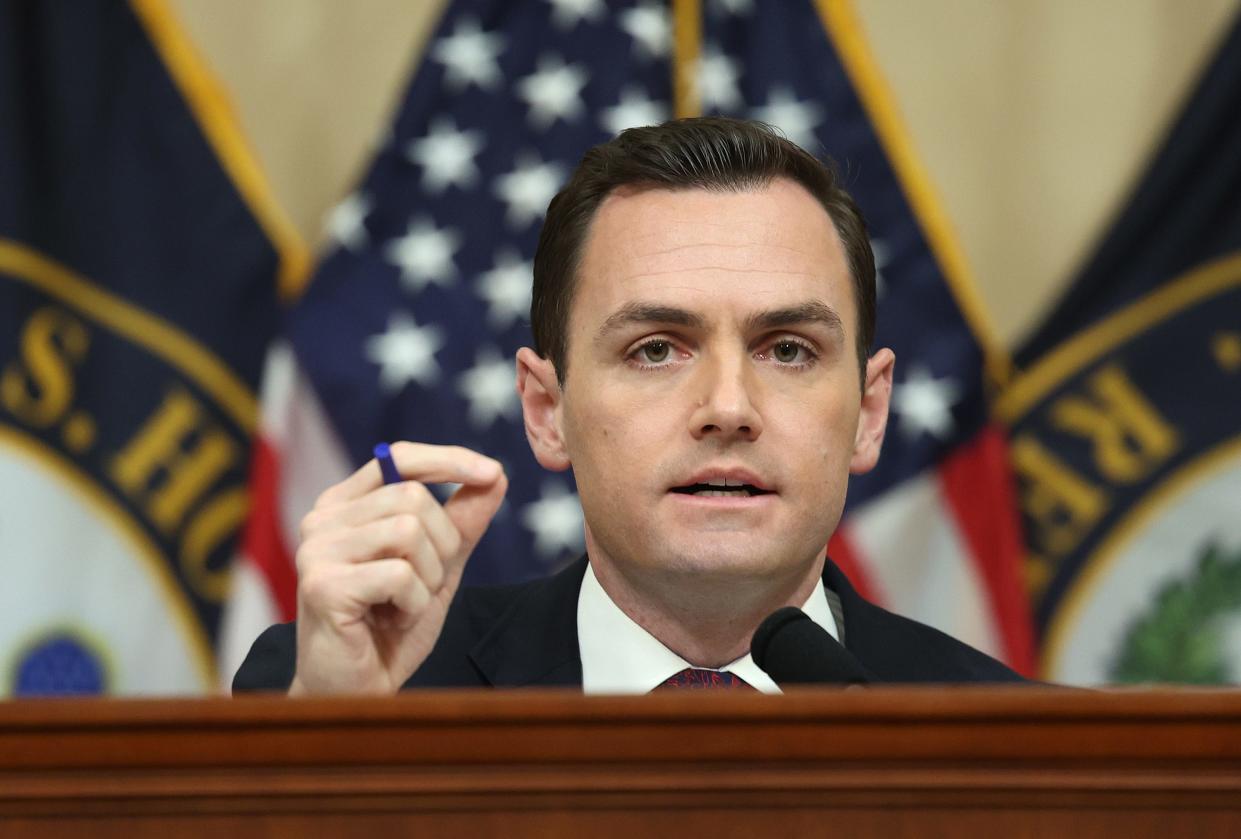Rep. Mike Gallagher's early departure puts GOP's slim majority on a tightrope

WASHINGTON – House Republicans will soon find themselves working with even less room for dissent after Wisconsin Rep. Mike Gallagher's surprise early departure from Congress next month.
The Green Bay Republican's decision to leave before the end of his current term means the House GOP can only afford one member to break with the conference on party-line votes moving forward — further complicating the slim majority's ability to pass their agenda. After Gallagher's departure, Republicans will control 217 House seats, and Democrats will have 213.
"When you have a one-seat majority anyplace, everybody's a king or a queen," said Brandon Scholz, a retired Republican strategist. "Anybody can stand up and say, 'here's what I want.' So it makes it... incredibly hard to try and either manage a compromise or run something up for a vote. Because (if) one person steps off or somebody from the other side joins you, it could change the game."
Gallagher, a 40-year-old fourth-term congressman who chairs the select committee investigating the Chinese Communist Party, announced last month that he would not seek reelection but said he would finish out his current term. On Friday, however, he said he would leave Congress April 19. He provided no explanation for the change, and an aide said only that the move was a "family decision."
Gallagher was first elected to Wisconsin’s 8th Congressional District in 2016 and quickly made foreign policy and attempts at congressional reform his focus. In announcing his retirement last month, Gallagher told the Journal Sentinel he felt he "accomplished much more than I even thought I could when I set out," citing recent policy recommendations from his select committee on China.
Among Gallagher's top goals this Congress was to crack down on TikTok, the video-sharing app owned by a Chinese-based company. He scored a major victory in that fight last week, when the House overwhelmingly passed his measure that would force the company to sell its stake in the app or face a ban in the United States. The bill's future is still uncertain in the Senate.
"He kind of looked at it like, 'I've gotten the committee into such a good spot, I've built such a good foundation where whoever takes this committee over... has the foundation, has the playbook to run through the tape and finish the work that they set out to do," Jordan Dunn, a spokesman for Gallagher, told the Journal Sentinel, referencing the House TikTok vote.
"He's proud of what they've done and very comfortable leaving it in its current spot after they had such a big win last week," Dunn said.
House Speaker Mike Johnson has "guaranteed" he'll appoint a new Republican to serve as chair of Gallagher's select committee on the Chinese Communist Party once Gallagher leaves Capitol Hill, Gallagher's office said.
Gallagher's earlier-than-previously-announced departure took many on Capitol Hill by surprise. It came as the House passed a $1.2 trillion spending package in which Democrats had to provide the bulk of the votes — a circumstance that angered some on the GOP's right flanked and resulted in one member filing a petition to oust Johnson, the current speaker. The Senate passed the measure early Saturday.
The Republican conference has operated under the slimmest of majorities for much of the 118th Congress, but the recent early departures of a number of members — and now Gallagher — puts Republicans on a tightrope.
Just this month, after Colorado Republican Rep. Ken Buck said he would leave Congress early, Johnson said: "I think, I hope and believe that that’s the end of the exits for now."
Still, Gallagher in his statement Friday said he "worked closely with House Republican leadership on this timeline" to leave early. And his office told the Journal Sentinel House leadership had been aware this could happen "for weeks."
Democrats are expected next month to fill a seat left vacant by the departure of New York Rep. Brian Higgins. And Republicans are likely to re-establish two seats of their own — a California district left vacant by former Speaker Kevin McCarthy and an Ohio seat left empty with the retirement of Rep. Bill Johnson.
Gallagher's seat will likely be filled this fall — leaving the seat vacant in the absence of a special election.
State law requires a special election to be held to fill a vacancy in Wisconsin's congressional offices if the vacancy occurs before the second Tuesday in April in the year of a general election, which is April 9. Because Gallagher is resigning after that date, the vacancy may be filled in the August and November primary and general elections.
State Sen. Andre Jacque and former state Senate President and Lt. Governor candidate Roger Roth, both Republicans are running to replace Gallagher.
This article originally appeared on Milwaukee Journal Sentinel: Mike Gallagher's early departure puts GOP's majority on a tightrope